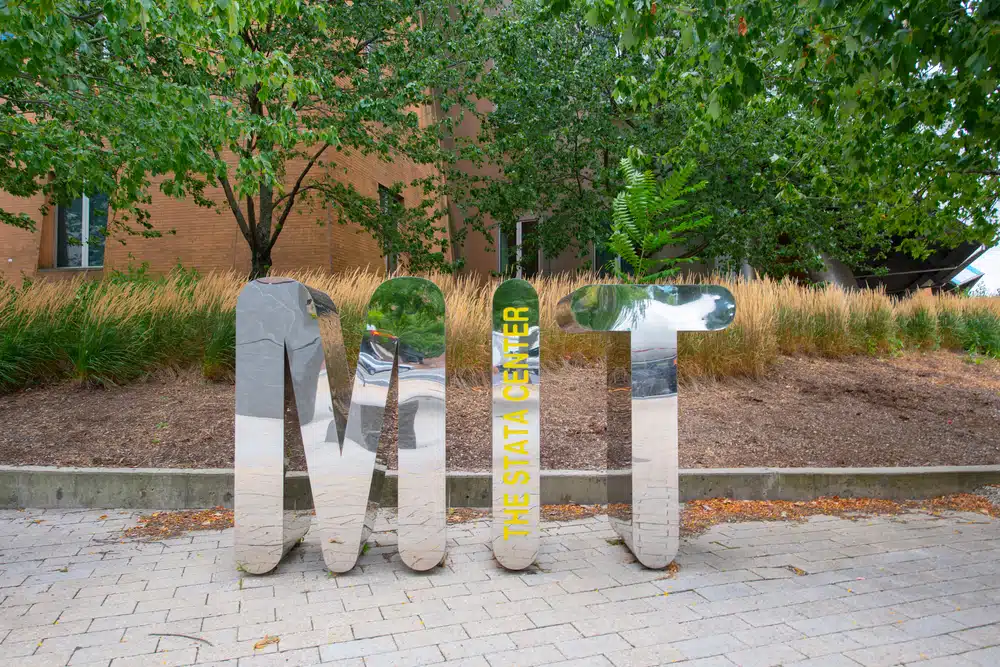Preparing for an MIT Interview: Tips for Success
Earning a spot for an interview at the Massachusetts Institute of Technology (MIT) is an impressive achievement. However, the interview process can be daunting. With the right preparation, you can navigate this crucial stage successfully and leave a lasting positive impression. This article provides in-depth guidance on how to prepare and succeed in your MIT interview.
Understanding the MIT Interview Process
The MIT interview process is an opportunity for the admissions team to get to know you better. It is also a chance for you to express your interest and abilities in a more personal way than writing supplements can convey. By understanding the process fully, you can organize your thoughts, plan your strategy, and present yourself in the best possible light.
When preparing for the MIT interview, it is important to remember that it is not just a formality. The interview plays a significant role in the admissions decision, as it allows the admissions team to assess your fit within MIT’s unique community.
While your grades and essays provide a good indication of your abilities, the interview allows the admissions team to evaluate less tangible aspects, such as your interpersonal skills, motivations, and personal character.
During the interview, you can usually expect a friendly and informal atmosphere. Each MIT interview is conducted by an Educational Counselor (EC) who is an alumnus of the institute. This means that the EC has firsthand experience of what it’s like to be a student at MIT and can provide valuable insights into the institution. The EC is there to help you feel comfortable and to get a sense of who you are as a person.
The questions asked during the interview are typically open-ended and designed to give you the opportunity to showcase your academic background, extracurricular activities, and future goals. The EC may ask about specific projects or experiences you have had, allowing you to delve deeper into your passions and accomplishments. This is your chance to highlight your strengths and demonstrate your potential as a student at MIT.
It is important to remember that the interview is not just about showcasing your achievements. The admissions team is also interested in understanding your motivations and personal character. They want to know what drives you, what challenges you have faced, and how you have grown as a person. This is your opportunity to share your story and provide the admissions team with a deeper understanding of who you are.
Preparing for the MIT interview involves more than just rehearsing answers to common questions. It is important to reflect on your experiences, values, and goals and to think about how they align with MIT’s mission and values. By doing so, you will be able to articulate your thoughts and passions more effectively during the interview.
Remember, the MIT interview is not a test or a competition. It is an opportunity for you to have a conversation with someone who is genuinely interested in getting to know you. Be yourself, be honest, and let your enthusiasm for learning and discovery shine through.
Essential Preparation Steps
Preparation for your MIT interview involves several steps, namely researching MIT’s culture and values, reviewing your application, and practicing common interview questions. These steps ensure that your answers align with what MIT is looking for and reflect your best attributes.
Researching MIT’s Culture and Values
Knowing MIT’s culture and values will help you express your understanding and alignment with them. The institute values innovation, hard work, inclusivity, and intellectual curiosity, among other things. Demonstrate these values in your responses to show that you would thrive in and contribute to MIT’s diverse community.
When researching MIT’s culture, it is important to delve into the history and traditions of the institution. MIT has a rich legacy of groundbreaking research and technological advancements. Familiarize yourself with notable alumni and their contributions to various fields. Understanding the impact MIT has had on society will give you a broader perspective on the institute’s values.
Additionally, explore the various clubs, organizations, and extracurricular activities that MIT offers. These opportunities provide a glimpse into the vibrant and collaborative community that exists on campus. Consider how your own interests and passions align with the available resources at MIT, and highlight these connections during your interview.
Reviewing Your Application
Revisiting your application can help you remember the details you provided and ensure consistency in your answers. It will also remind you of the stories and experiences you can share to give more depth to your responses.
As you review your application, pay attention to the specific projects, achievements, and challenges you have mentioned. Think about how these experiences have shaped your goals and aspirations. Reflect on the lessons you have learned and the skills you have developed along the way. By doing so, you will be better prepared to discuss your journey and the impact it has had on your desire to attend MIT.
Furthermore, consider any updates or recent accomplishments that have occurred since submitting your application. Have you participated in any new research projects, taken on leadership roles, or received any notable recognition? These updates can add another layer of depth to your interview responses and demonstrate your continued growth and commitment.
Practicing Common Interview Questions
Being familiar with common interview questions and preparing thoughtful responses in advance can help you articulate your ideas clearly and confidently. Remember, practice makes perfect. However, beware of sounding rehearsed. Your responses should feel natural and conversational.
Start by researching common interview questions that are often asked in college admissions interviews. MIT’s website and other reputable sources can provide you with a list of frequently asked questions. Once you have identified these questions, take the time to brainstorm and craft well-thought-out responses.
Consider incorporating personal anecdotes and specific examples into your answers. This will help bring your responses to life and provide the interviewer with a deeper understanding of your experiences and perspectives. Additionally, practice answering these questions with a friend or family member to simulate the interview environment and receive feedback on your delivery and content.
Remember that the purpose of practicing is not to memorize your responses verbatim but rather to gain confidence in discussing your achievements, goals, and motivations. Embrace the opportunity to showcase your unique qualities and demonstrate why you are a perfect fit for MIT.
Tips for the Day of the Interview
The day of the interview will naturally be nerve-racking, but by dressing for success, arriving on time, and employing effective communication strategies, you can make a good impression.
Preparing for an interview can be both exciting and anxiety-inducing. It’s important to remember that the interview is an opportunity for you to showcase your skills, experience, and personality. With the right preparation and mindset, you can increase your chances of success.
Dressing for Success
While MIT interviews are not overly formal, you should still choose clothes that are comfortable and professional. Adhere to the business casual dress code – this conveys a serious attitude towards the interview process without appearing overly formal.
When selecting your outfit, consider the industry and company culture. Research the organization beforehand to get a sense of its dress code. It’s always better to be slightly overdressed than underdressed. Remember, your appearance can influence the interviewer’s perception of your professionalism and attention to detail.
Arriving on Time and Prepared
Punctuality reflects respect for other people’s time and is crucial in making a good first impression. Plan your route in advance, taking into account traffic and potential delays. Aim to arrive at least 10-15 minutes early to allow yourself time to settle and collect your thoughts.
Before the interview, familiarize yourself with the company and the role you are applying for. Research their mission, values, recent news, and any notable projects they have been involved in. This knowledge will not only demonstrate your interest in the position but also enable you to ask insightful questions during the interview.
In addition to researching the company, create a checklist of items to bring to the interview. This may include a copy of your resume, a portfolio of your work, a list of references, and a pen and paper for note-taking. Being prepared with these materials shows your organization and attention to detail.
Effective Communication Strategies
During the interview, clear and concise communication is essential. Maintain eye contact, listen carefully, and respond thoughtfully. Remember that a good conversation involves speaking and listening in equal measure.
When answering questions, take a moment to gather your thoughts before responding. This will help you provide well-structured and coherent answers. Avoid rambling or going off on tangents. Instead, focus on providing relevant examples and showcasing your skills and experiences.
Active listening is equally important. Pay attention to the interviewer’s questions and comments, and respond accordingly. Engage in the conversation by asking follow-up questions or seeking clarification when needed. This demonstrates your genuine interest and engagement in the interview process.
Lastly, be mindful of your body language. Sit up straight, maintain good posture, and use appropriate hand gestures to emphasize your points. A confident and positive demeanor can leave a lasting impression on the interviewer.
Post-Interview Actions
While the interview may be over, there are several post-interview actions you can take to leave a lasting positive impression on your interviewer.
One important post-interview action is sending a thank you note. This simple gesture not only shows your appreciation for the interviewer’s time but also gives you an opportunity to reaffirm your interest in MIT. In the thank you note, you can express your gratitude for the opportunity to interview and highlight specific aspects of the conversation that resonated with you.
By taking the time to send a personalized thank you note, you demonstrate your professionalism and attention to detail, which can set you apart from other candidates.
Sending a Thank You Note
Sending a thank you note after the interview not only shows your appreciation for the interviewer’s time but also gives you an opportunity to reaffirm your interest in MIT. You can mention specific aspects of the interview that stood out to you, such as a particular project or research opportunity discussed.
This not only shows that you were actively engaged during the interview, but it also demonstrates your enthusiasm for the school and its programs.
Additionally, a thank you note allows you to address any questions or concerns that may have arisen during the interview. If there was a topic that you felt you didn’t fully address or if there is additional information you would like to provide, the thank you note is the perfect platform to do so.
By addressing any lingering doubts or providing further clarification, you can ensure that the interviewer has a comprehensive understanding of your qualifications and potential as a student at MIT.
Following Up After the Interview
Don’t be afraid to follow up if you haven’t heard back within a reasonable time frame, often within two weeks. Following up after the interview is a way to demonstrate your continued interest in MIT and to ensure that your application is still being considered. It shows your proactive nature and eagerness to stay engaged in the admissions process.
When following up, it is important to be polite and respectful. You can start by expressing your gratitude for the opportunity to interview and reiterating your enthusiasm for MIT. You can then inquire about the status of your application and politely ask if there is any additional information or documentation you can provide to support your candidacy.
By taking the initiative to follow up, you demonstrate your commitment and dedication to becoming a part of the MIT community.
Remember, the post-interview period is not just a waiting game. It is an opportunity for you to take proactive steps to strengthen your application and leave a lasting positive impression on the admissions committee. By sending a thoughtful thank you note and following up in a respectful manner, you can showcase your professionalism, enthusiasm, and genuine interest in attending MIT.
Dealing with Interview Anxiety
Despite thorough preparation, interview anxiety can still creep in. There are several techniques you can employ to keep your nerves in check and maintain a positive mindset.
Techniques for Managing Stress
Meditation, deep breathing exercises, and visualization can be effective methods for managing anxiety. Practicing these techniques before the interview can help calm your nerves and increase your confidence.
Maintaining a Positive Mindset
Remember, being invited for an interview already shows that MIT is interested in you. Stay positive and believe in your abilities. Remember, every interview is a learning experience and an opportunity to grow.
Conclusion
In conclusion, the MIT interview is a unique opportunity to showcase your personality, experiences, and alignment with MIT’s values beyond what your application reflects. By understanding the process, researching MIT’s culture, reviewing your application, and practicing your responses, you can enter the interview room with confidence.
With these strategies and a well-prepared mindset, you can navigate the MIT interview successfully and increase your chances of becoming a part of MIT’s vibrant and innovative community. Best of luck on your journey to MIT!
Having all the necessary information is important before choosing any course of action. AdmissionSight is always here to assist you with any questions or concerns. We have more than ten years of expertise assisting students in successfully navigating the challenging admissions process.
Consult with AdmissionSight and find out what we can do to help you get into the school of your choice by ensuring that you are sufficiently aware and well-prepared for the application process.










































